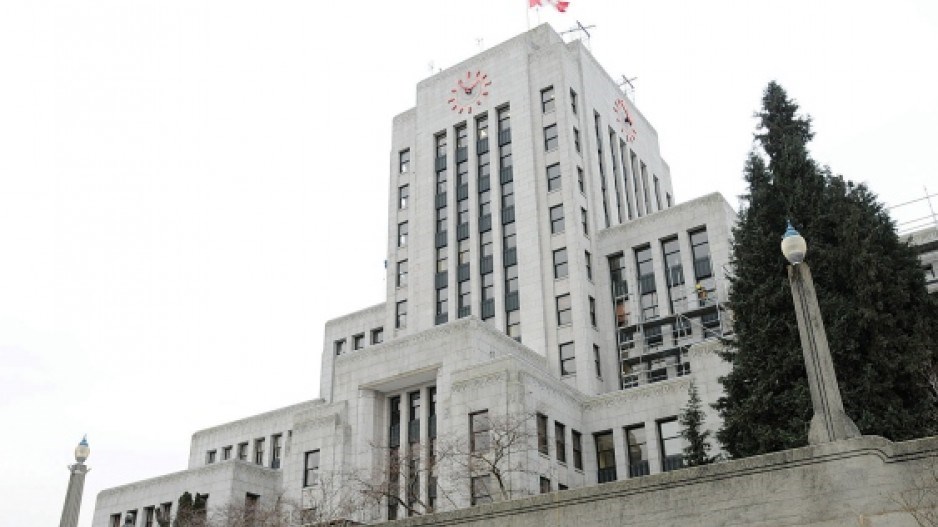What a difference one year makes.
A year ago, Vancouver city Coun. Rebecca Bligh rejected the idea of a lawsuit against global fossil fuel companies for climate damages, saying, “We are not in a position to spend public money on individual lawsuits, whatever the topic.” It was a view endorsed by her fellow ABC Vancouver councillors.
But now the City of Vancouver is suing three companies that it says did shoddy repairs on the Granville Street Bridge, trying to recover some of the funds that are needed to fix the resulting “dangerous conditions.”
Let’s be clear – if shoddy repairs are costing the city a lot of money and potentially putting residents’ safety at risk, then Vancouver city council is justified in suing those responsible.
But it’s important to recognize that council’s fiscal responsibility to recover massive costs resulting from climate change is no different.
Vancouver is already spending $50 million per year (and rising) to rebuild after climate disasters and prevent future harm. The alternative to holding fossil fuel companies accountable for climate costs is huge tax increases for Vancouver residents, while allowing those companies, which have played a major role in causing the harm, to continue to pocket the profits.
The case for suing Big Oil
In 1998, a confidential Shell Oil memo considered a future scenario in which violent storms lead to intense public debate over who should be liable for climate costs and a class-action lawsuit against fossil fuels for neglecting the issue of climate change. The report’s authors predicted that such a lawsuit could spark an anti-fossil fuel movement, paralleling the social movement against tobacco.
More than a quarter of a century has passed since Shell’s predictions. Since then, here in B.C. we have seen the types of storms that Shell predicted, as well as devastating floods, wildfires that burned a village to the ground and a heat dome that killed hundreds, all caused by climate change.
Roughly a quarter of Americans now live in states or cities that are suing fossil fuel companies for climate harm. And yet here in Canada, it still seems radical to suggest that fossil fuel companies should be held liable for at least some of the harm that their industry is causing our communities.
Legally speaking, it’s not such a radical idea – in fact, there is a solid basis for our local governments to bring a lawsuit of this type under Canadian law. Fossil fuel companies knew their products would harm our communities, but actively worked to mislead the public and to keep consumers from having readily available renewable alternatives.
While it’s true that individuals like you and I must take responsibility for our own (relatively small) role in causing climate change, this is not a rationale for letting fossil fuel companies off the hook from shouldering at least some of the responsibility for the (very large) role they and their products have had in causing it.
The fact is that the fossil fuel industry’s actions caused the climate crisis we face to be much worse than it would be otherwise. As a result, our governments are spending billions of dollars dealing with climate change impacts.
Time for Vancouver city council leadership
With its lawsuit to recover Granville Bridge repair costs from construction companies, Vancouver city council has recognized that when companies cause harm to local infrastructure, the city has a financial obligation to sue those corporations to recover those costs.
Climate change is becoming increasingly costly for Vancouver and other B.C. communities, and it’s a major factor in driving up taxes. Vancouver’s costs are rising – with the city expecting to pay $1 billion in the coming decades to keep False Creek and other low-lying areas safe from sea level rise.
By working together on a class-action lawsuit, B.C. communities can keep their climate costs and risks manageable. We need to ask why the City of Vancouver, in an about- face from commitments made by a previous city council, is now refusing to work with other B.C. local governments to hold accountable those that have contributed most to climate change.
Andrew Gage is a staff lawyer with West Coast Environmental Law and a founder of the Sue Big Oil campaign. For more information see www.suebigoil.ca.



